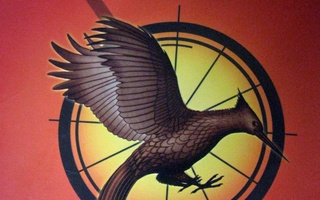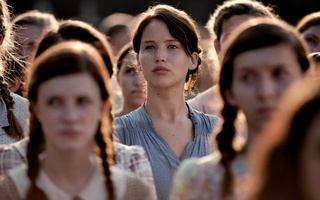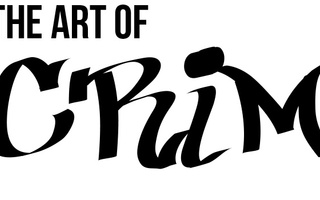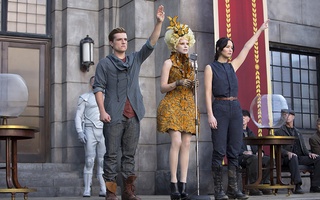The Gender-Neutral Games
This Friday marked the theatrical release of “The Hunger Games,” the film adaptation of Suzanne Collins’ popular young adult novel.The franchise’s move to the silver screen places it among the legions of vampires, wizards, and singing and dancing teens that often leave middle school girls swooning and feminist critics groaning. The Hunger Games, however, is different: The female protagonist is a highly skilled hunter, while the primary male character’s greatest talent is frosting cakes. As a result, the series has earned acclaim for its tone of female empowerment. However, in praising the lead female’s characteristically masculine traits, critics undermine The Hunger Games’ decidedly gender-neutral political agenda.
Teenage readers and middle-aged reviewers alike agree that Katniss, the protagonist of the franchise, is “a strong feminist role model: independent, skilled, fierce.” Katniss may be a strong woman, but The Hunger Games ultimately cautions against the very strengths that its main character upholds and critics exhort. With independence comes the temptation of apathy: At a strategic high and moral low during the Games, Katniss recognizes the ease with which she could survive if she left weaker, injured allies behind. Her sharp intellect and hunting skills brand her as a poster-child of survival of the fittest, the harsh world order against which the books elaborately protest. Her fierceness faintly echoes the ruthlessness of her oppressors; indeed, the overwhelming nature of vengeance is explored in-depth in the final book of the trilogy. Independence, skill, and relentlessness are the “strong, feminist” qualities that readers celebrate, but they are also the qualities that Collins’ books implicitly censure.
For what ideal, then, does The Hunger Games advocate? Femininity, it would seem. After all, Katniss ultimately chooses companionship over independence, relinquishes the dangerous power that her skills facilitate in favor of temperance, and trades her wrath for an attempt at tranquility, even domesticity. Through the eyes of Katniss, the cruel and destructive world of Panem has only two true heroes: Peeta, a non-aggressive, sensitive and deeply caring boy; and Primrose, an even more gentle, caring, angelic little girl. These characters do not exhibit the physical strength, political aggression, or obstinacy that characterize most of the prominent figures in the series. Indeed, they serve as the moral center of Katniss’s universe precisely because of their impermeability to the aggression around them, what Collins symbolically alludes to as “fire.” In The Hunger Games, fire is attractive and powerful, but it destroys everything in its path. On the contrary, redemption is possible through love, nurturing, and non-violence—qualities that carry feminine connotations.
The Hunger Games could easily be interpreted as a feminist allegory. In a sadistic, masculine world, Katniss is “a fiery teenage huntress battling to overcome a corrupt, male-dominated system.” Yet the franchise’s political undertone is more complicated, still. It crusades against brutality, but simultaneously condones it. With adrenaline-pumping passages, now translated into Hollywood action sequences, Collins invites us to revel in the gory glory of the Games. Real-life readers and viewers mirror the audience within the story, rooting for the survival of their favorite characters—and thereby, the deaths of other characters. At the same time, the story inspires us with the lofty feminized ideal of prioritizing altruistic selflessness over self-preservation, as demonstrated by an official trailer for the movie that heavily emphasizes the heroic self-sacrifice Katniss commits by taking her younger sister’s place in the Hunger Games. Somehow, the series refuses to fully embrace aggression or non-violence, and even hints at the futility of searching for a happy medium. With no resolution in sight, The Hunger Games leaves its fans confronting what we knew all along: Neither gender is superior. There is no paradigm for a perfect human, because no such being exists.
It is worth noting that the attributes of passivity and agression are not gendered in Collins’ literary universe. Remarkably, The Hunger Games assumes that gender is not circumscribed by defining character traits. Just as Katniss’ femininity is not questioned because of her emotional toughness, Peeta’s manhood is not doubted because of his emotional vulnerability. The nation of Panem may be an archaic dictatorship, but its post-gender social organization far outpaces the social advancement of our modern society. It takes for granted a principle that would startle much of The Hunger Games’ readership: there is nothing inherently masculine about aggression or feminine about passivity.
The Hunger Games largely avoids the restrictive lens of gender. Within Collins’ literary world, Katniss is characterized neither as feminine nor as feminist; she is merely a complex, humanized character. Perhaps this is the real victory of the Games.
Tarina Quraishi ’14, a Crimson editorial writer, is an English concentrator in Eliot House.
Read more in Opinion
Rape and The Gatekeeper NarrativeRecommended Articles
-
 'The Hunger Games' Drinking Games
'The Hunger Games' Drinking Games -
 ‘Hunger Games’ Will Sate Book’s Fans
‘Hunger Games’ Will Sate Book’s Fans -
The Odds Ever in Our FavorAs far as I was concerned, the freshman world was dog-eat-dog, tribute-spear-tribute. With every day came a new rush toward the Cornucopia to gather items perceived as essential to survival. Some were harder to acquire than others. Everyone could lay their hands on everyday necessities like those in Katniss’s backpack: an umbrella, a Snuggie, Advil, Adderall, condoms.
-
 Lady Killers or Killer Ladies?
Lady Killers or Killer Ladies? -
 "Hunger Games" Catches Excitement
"Hunger Games" Catches Excitement













